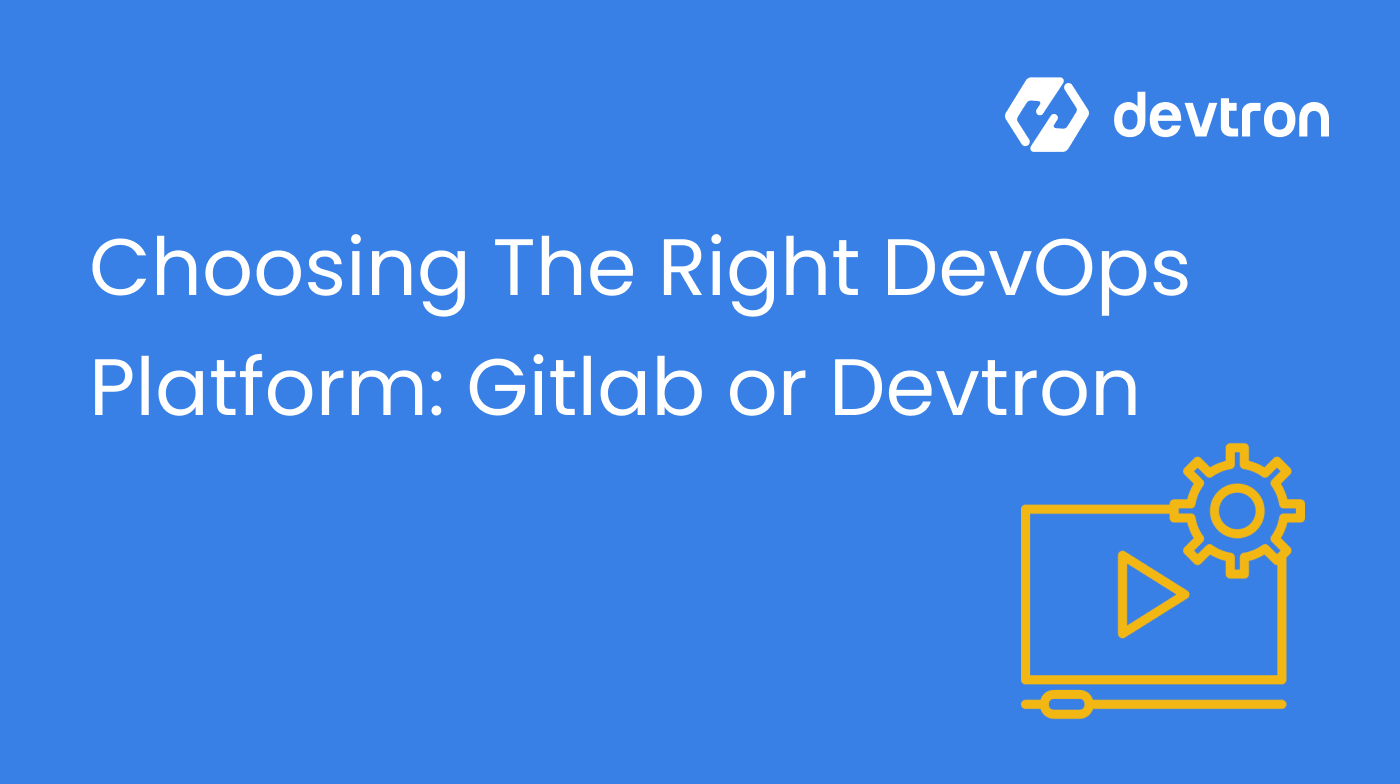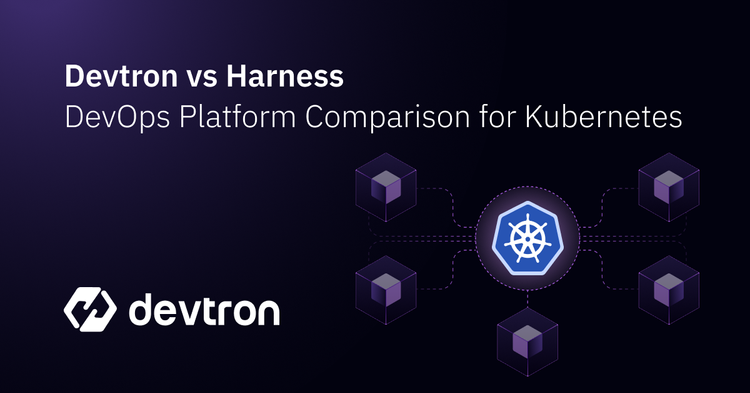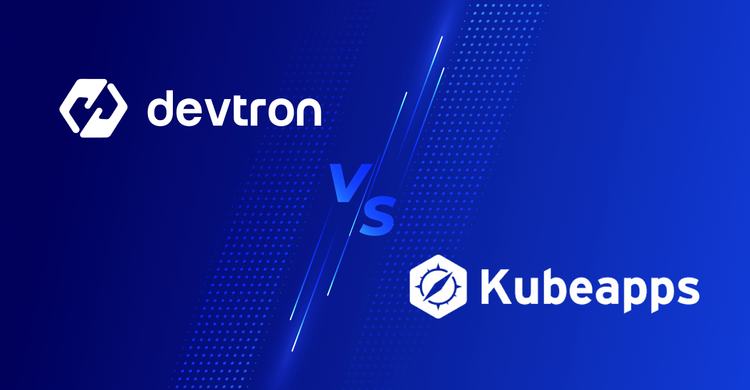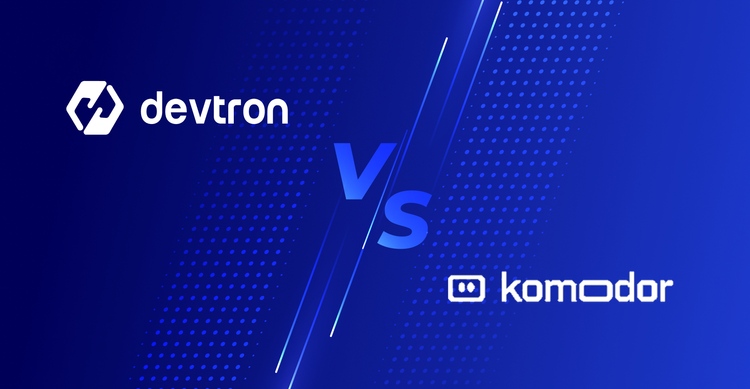Choosing an effective DevOps platform is more than a technical decision; it's strategic. The right platform can streamline workflows, enhance automation, and significantly improve the overall efficiency of the development process. GitLab and Devtron are two impressive options that offer unique approaches to DevOps.
With its integrated suite of tools, GitLab has gained a reputation for being a comprehensive DevOps solution, bringing together source code management, CI/CD, issue tracking, and more in one platform. This all-encompassing approach offers a stark contrast to more traditional, modular systems.
Devtron is a specialized platform designed specifically for streamlined, containerized application development and deployment on Kubernetes. If you are looking for the right platform to meet your DevOps needs, join us as we explore these two platforms in more detail.
Overview of GitLab
GitLab has evolved significantly from its beginnings as a version control system, becoming a full-fledged DevOps platform. Initially centered around source code management, GitLab now encompasses a broad spectrum of DevOps processes, establishing itself as a unified solution for managing the entire software development lifecycle. This evolution positions GitLab as a more integrated alternative to platforms like Jenkins, which traditionally focus on continuous integration and require additional tools for comprehensive lifecycle management. There are benefits to having a broad, unified, DevOps platform and there are also drawbacks since each solution in the platform has fewer features than a comparable point solution from other vendors that specialize instead of providing a platform.
Key Features of GitLab
- GitLab CI: Central to GitLab's offerings is GitLab CI (Continuous Integration), which automates the integration of new code changes. This leads to more frequent and reliable software builds, a functionality often paralleled with Jenkins' CI capabilities but integrated directly within GitLab’s ecosystem.
- Repository Management: GitLab excels in managing Git repositories, offering a streamlined version control and code collaboration approach. It supports advanced branching strategies and merge requests, which Jenkins facilitates through plugins but are natively integrated with GitLab.
- Issue Tracking: Unlike Jenkins, which requires third-party tools for issue tracking, GitLab provides an integrated system within the same environment, aligning development work closely with business goals and user needs.
- Integrated CI/CD Approach: Setting itself apart from platforms like Jenkins, which often rely on external tools for CI/CD (Continuous Integration and Continuous Delivery), GitLab offers an inclusive CI/CD pipeline within its own platform. This reduces the complexity and overhead associated with managing separate systems. GitLab is well known for their robust CI capabilities but users often complain about the manual effort involved in setting up GitLabs CD to the point where it can provide the desired value to the end user.
- Extended Capabilities: GitLab’s website boasts an astounding 50 major capabilities across 8 groupings which are plan, create, verify, secure, package, deploy, monitor, and govern. That’s a broad spectrum of software with some capabilities providing significantly more value than others. If you choose to engage with GitLab make sure you understand the depth of each module as you are reviewing the breadth of capabilities offered.
- Pricing and TCO: GitLab has a fairly simple pricing model but as with everything, the devil is in the details. There are 3 tiers (Free, Premium, and Ultimate) but each tier comes with limitations that you’ll want to understand so you can estimate your TCO (Total Cost of Ownership). Those limitations may or may not impact your overall costs so it’s best to find out before you sign any agreement.
Open-Source Nature and Cross-Platform Compatibility
As an open-source platform, GitLab encourages community-driven development, a trait shared with Jenkins. This openness leads to rapid feature development and bug fixes and allows customization to meet specific user needs.
GitLab's cross-platform compatibility, similar to Jenkins, ensures its effective operation on Linux, macOS, and Windows, providing a consistent experience for developers across different environments.
GitLab's evolution and growth showcase its commitment to offering a broad collection of features, encompassing everything from efficient repository management to a unified CI/CD pipeline while staying true to its open-source ethos. When considering GitLab vs Jenkins (we make this comparison because Jenkins is used by so many companies still), GitLab stands out for its more integrated and cohesive environment. This integration is particularly appealing for teams seeking a single platform covering all software development and lifecycle management aspects. Unlike Jenkins, which often requires combining different tools for a complete solution, GitLab provides an all-encompassing environment, streamlining various development processes under one roof.
Overview of Devtron
Devtron has emerged as a key player in the DevOps domain, particularly for its Kubernetes-native approach and ease of use in CI/CD processes. Devtron focuses on providing a specialized, container-centric solution, catering specifically to teams working with Kubernetes-based application environments. Since It offers a specialized solution for Kubernetes, its core value proposition lies in streamlining deployment processes and providing an unmatched level of simplicity for rapid adoption and onboarding.
Key Features of Devtron
- Kubernetes-Native CI/CD: At its core, Devtron is designed for seamless integration with Kubernetes, offering an optimized CI/CD solution for containerized applications. This specialization maks it an ideal choice for Kubernetes-centric workflows.
- Containerization and Deployment Strategies: Devtron excels in containerization with an intuitive interface, supporting various deployment strategies tailored for Kubernetes.
- Integrated Dashboard for Kubernetes Management: Featuring an integrated dashboard, Devtron simplifies the management of Kubernetes clusters, offering complete control and a comprehensive view of its specialized functionalities. You can leave those kubectl commands behind and use Devtron web-based Kubernetes Dashboard instead.
- Open-Source with Strong Community Support: Devtron’s open-source nature fosters a robust community support system, facilitating continuous enhancements and customization.
- Comprehensive API and CI Tool Integration: Devtron integrates a comprehensive set of APIs and CI tools, making it compatible with various operating systems and enhancing existing CI/CD pipelines.
- Real-Time Notifications and Updates: Devtron ensures that teams are informed with real-time notifications, which enhances its usability and responsiveness, particularly in dynamic Kubernetes environments.
Regardless of whether your application are written in Java, Python, Ruby, or any other language, Devtron’s dedication to Kubernetes, combined with its ease of use, strong community support, and comprehensive control over CI/CD processes, positions it as a premiere platform for containerized application development.
Comparing GitLab and Devtron
In selecting the right DevOps platform, it is helpful to understand the nuances between GitLab and Devtron. Each platform brings unique strengths in various aspects of DevOps, particularly in CI/CD capabilities, ease of use, plugin support, workflow automation, deployment options, and project management.
CI/CD Capabilities
- GitLab: GitLab is renowned as a comprehensive CI/CD tool, integrating continuous integration, delivery, and deployment within its platform. It supports complex CI/CD pipelines, making it suitable for multi-cloud environments. The platform's integrated approach to issue tracking and merge requests streamlines the CI/CD process.
- Devtron: As a CI/CD platform designed for Kubernetes applications, Devtron offers specialized capabilities for containerized applications, emphasizing continuous deployment and integration. While it might not match GitLab's breadth, it provides a focused framework for Kubernetes-centric environments which accelerates migration of applications to just a few weeks for many companies. That’s an extremely fast ramp.
Ease of Use
- GitLab: GitLab provides an all-encompassing workspace that simplifies the DevOps lifecycle. Its extensive tutorials and documentation make it easy to navigate, even for beginners. It’s been around for a while and in some regards it’s UI is starting to show it’s age but for most users it is functional and familiar.
- Devtron: Devtron's interface is simple yet powerful. Developers feel right at home using the GUI but they can also use the extensive Devtron API to fully achieve their software delivery needs.
The Devtron Kubernetes dashboard should be the first thing any DevOps team installs after setting up a new K8s cluster. This dashboard shows every detail you need to know, eliminating the need to know Kubernetes command line. This greatly accelerates the adoption of Kubernetes in any organization.
Plugin Support
- GitLab: GitLab’s extensibility through plugins and its vast ecosystem allows for customization, although its comprehensive built-in features often reduce the need for additional plugins.
- Devtron: Devtron also supports a range of plugins, particularly those enhancing Kubernetes operations. Its open-source nature fosters community-driven plugin development.
Workflow Automation
- GitLab: GitLab has extensive workflow automation, providing tools for automating various stages of the development process. This includes an automation server functionality within its CI/CD framework. It’s important to note that there are some reports that the CD workflows in GitLab require more work than users were expecting or desired.
- Devtron: Devtron focuses on automating Kubernetes workflows, offering specialized tools for continuously deploying and managing containerized applications. It’s one of the easiest solutions on the market to adopt and it provides extensive workflow automation that should not require extra scripting.
Deployment Options
- GitLab: GitLab supports various deployment options, including on-premise and cloud-based solutions, catering to diverse organizational needs.
- Devtron: Primarily a self-hosted solution, Devtron is optimized for Kubernetes deployments, making it a strong candidate for containerized and multi-cloud environments.
Project Management and Collaboration Tools
- GitLab: With integrated project management features, GitLab facilitates collaboration through tools like issue tracking and source code management, comparable to platforms like GitHub.
- Devtron: While Devtron offers some project management functionalities, its main focus remains on the CI/CD and Kubernetes aspects, with less emphasis on broader project management tools compared to GitLab.
While GitLab offers a more general, all-in-one DevOps solution with extensive CI/CD, project management, and collaboration tools, Devtron provides a more specialized approach focused on Kubernetes and container management. The choice between them hinges on specific project requirements, with GitLab ideal for those seeking an integrated, extensive platform and Devtron appealing to those needing a robust, Kubernetes-centric CI/CD solution.
Better Kubernetes Integration With Devtron
For Kubernetes-focused DevOps projects, Devtron is a powerful tool. Its ability to integrate with and enhance established platforms such as GitLab and Jenkins offers the flexibility that developers need. This integration facilitates more efficient and streamlined management of containerized applications while simplifying the intricacies of orchestrating Kubernetes operations.
Key Aspects of Devtron
- Specialized CI/CD Pipelines for Kubernetes: Devtron provides robust features specifically designed for setting up and managing CI/CD pipelines in Kubernetes. This specialization addresses the unique challenges associated with container orchestration and deployment, offering a more tailored approach than general CI/CD tools.
- Enhanced Security in Kubernetes CI/CD: Security within Kubernetes is a focal point for Devtron. It adopts a comprehensive strategy for securing Kubernetes in CI/CD pipelines, aligning with best practices to ensure the integrity and safety of the deployment process.
- User-Friendly Interface for Ease of Use: Devtron stands out for its user-friendly interface despite the complexities typically associated with Kubernetes. It demystifies Kubernetes management and offers comprehensive control over deployments, making Kubernetes accessible to teams with varying levels of expertise.
- Streamlined Development and Deployment Processes: By integrating smoothly with various ecosystems and supporting Docker images and extensive plugin support, Devtron significantly streamlines the development and deployment process. This integration leads to smoother, more efficient workflows in software development.
- Customization and Flexibility: Devtron further enhances its appeal with features like customizable templates, enhanced dependency management, and extensive plugin support. These additions create a robust and flexible DevOps environment adaptable to diverse project needs.
In essence, Devtron fills the gaps left by platforms like GitLab and Jenkins in Kubernetes-centric workflows and enhances them. It positions itself as a crucial solution in the DevOps toolkit, particularly for teams focusing on Kubernetes. Devtron's comprehensive solution streamlines the software development lifecycle, from CI/CD to security, while simplifying the complexity inherent in Kubernetes environments.
Embrace Enhanced DevOps with Devtron
As you navigate the diverse landscape of DevOps tools, consider Devtron as your partner in enhancing and complementing environments powered by GitLab and Jenkins. Devtron's unique capabilities in Kubernetes management, security, and streamlined workflows position it as an invaluable asset in your DevOps toolkit. Elevate your software development and deployment process by exploring the comprehensive features and benefits that Devtron offers.







